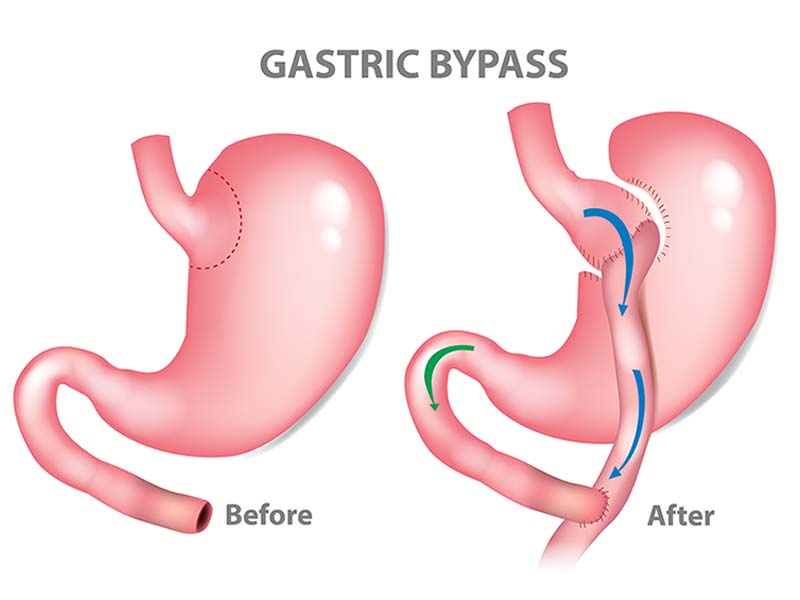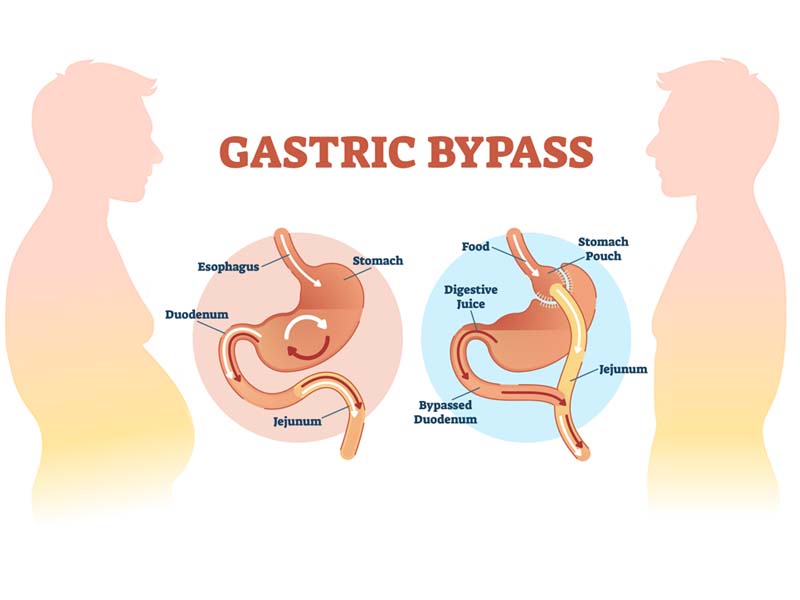Gastrik bypass, midenizi ceviz büyüklüğüne düşüren 'altın standart' kilo kaybı ameliyatı olarak kabul edilir. Roux-en-Y (roo-en-wy) olarak da bilinen gastrik bypass, mideden küçük bir torba oluşturmayı ve yeni oluşturulan keseyi doğrudan ince bağırsağa bağlamayı içeren bir tür kilo verme ameliyatıdır. Gastrik bypass, dünyada en yaygın bariatrik cerrahi türlerinden biridir. Gastrik bypass, diyet ve egzersiz çalışmadığında veya kilonuzdan dolayı ciddi sağlık sorunlarınız olduğunda yapılır.
Prosedürün iki bileşeni vardır. İlk olarak, midenin üst kısmı midenin geri kalanından bölünerek yaklaşık bir ons veya 30 mililitre hacminde küçük bir mide torbası oluşturulur. Daha sonra, ince bağırsağın ilk kısmı bölünür ve bölünmüş ince bağırsağın alt ucu açılır ve yeni oluşturulan küçük mide torbasına bağlanır. İşlem, bölünmüş ince bağırsağın üst kısmının ince bağırsağa daha da bağlanmasıyla tamamlanır, böylece atlanan mideden mide asitleri ve sindirim enzimleri ve ince bağırsağın ilk kısmı sonunda gıda ile karışır. Gastrik bypass ameliyatlarının çoğu laparoskopiktir, yani cerrah küçük kesimler yapar. Bu, daha kısa iyileşme süresi sağlar. Ameliyatın "açık" olması gerekiyorsa, cerrahın daha büyük bir kesim yapması gerektiği anlamına gelir, iyileşme daha uzun sürer.

